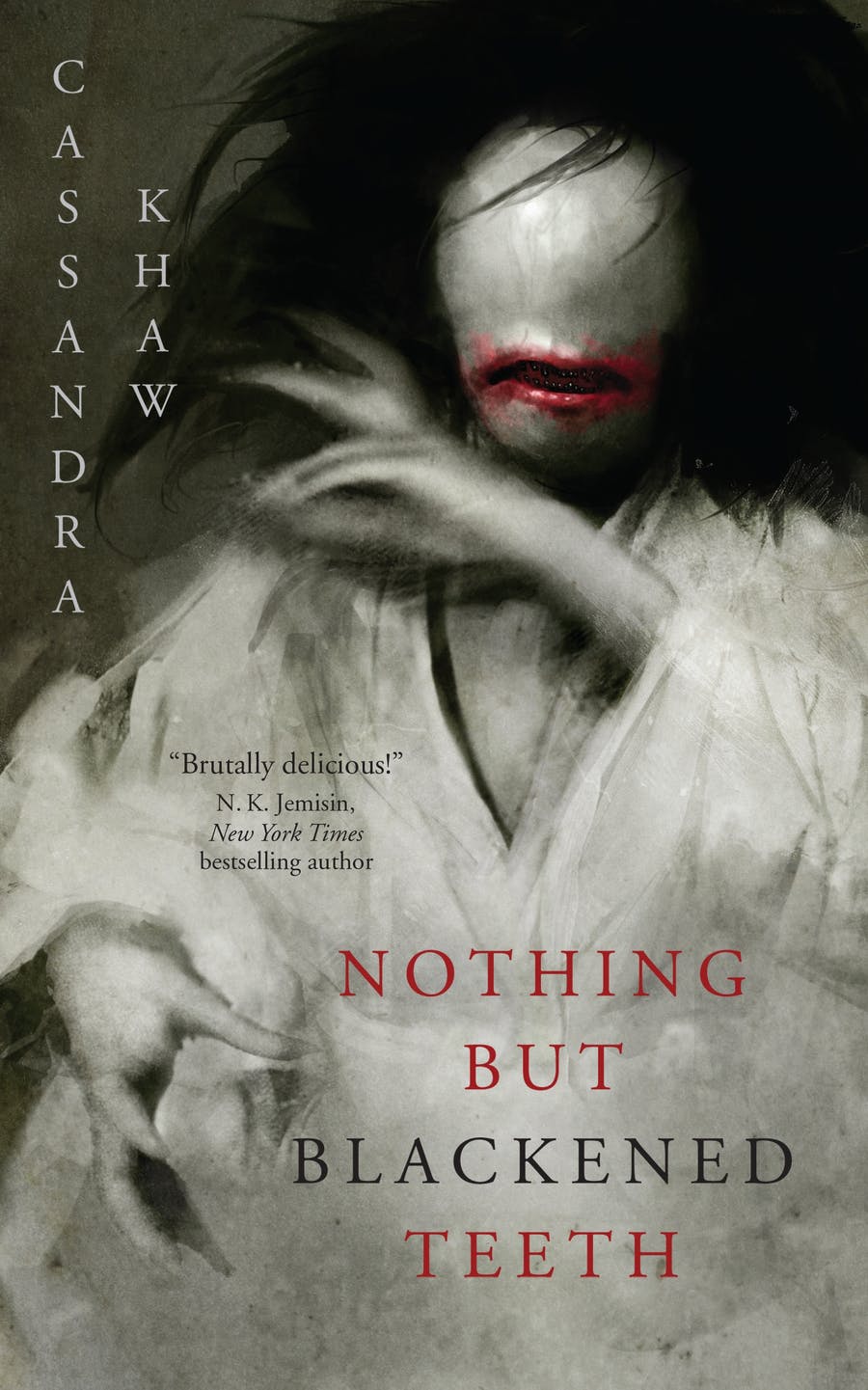Grammar Quirks: Cassandra Khaw on Writing for Video Games
Cassandra Khaw, author of “Nothing But Blackened Teeth,” discusses what is involved in writing dialogue for the non-player characters in video games.
Grammar Girl: What’s your favorite word and why?
Cassandra Khaw: “Nacre.” My god, how I love that word. I love the way I hear the shine in it.
GG: What’s a word you dislike (either because it’s overused or misused) and why?
CK: “Triggered.” I have a vicious dislike of how certain demographics have co-opted the word and now use it as an insult, or as a way of taunting people who have survived impossible horrors.
Buy Now

GG: What word will you always misspell?
CK: “Masscheteuts.” “Massesteusuts”? “Massachusetts” … That and “Mississippi” trip me up constantly.
GG: What word (or semblance of a word) would you like to see added to the dictionary? Why?
CK: “TK.” It’s a publishing term meaning “to come,” and I picked up its usage while I was working as a reporter. Unfortunately, I’ve since learned that not very many people understand its meaning. I’ve had people repeatedly ask why I’m making a cockroach-like noise when I finish a sentence with ‘tktktktk.’
GG: Any grammar pet peeves we should know about?
CK: I die a little whenever I see “peak” and “pique” confused, or when I see someone swap “complement” with “compliment.”
Grammar Girl tackles this mistake in “Compliment” Versus “Complement”
GG: To what extent does grammar play a role in character development and voice?
CK: Gods, I think this answer differs depending on the author, the book, and the circumstances. Like, on a very basic level, grammar can help differentiate a character’s voice by showing a person’s education level, their understanding of the common tongue, their upbringing, even their state of coherence. But grammar can also be messed around with to create momentum, to disquiet a reader, to make them feel ill at ease, to create a sense of foreignness in the text. It can even be utilized to almost—*gestures vaguely at air*—create a sense of cinematography. Stephen Graham Jones’ “The Only Good Indians” and Tasmyn Muir’s “Harrow the Ninth” play loose and fast with their storytelling perspectives, engineering moments I didn’t realize were possible for text.
GG: Do you have a favorite quote or passage from an author you’d like to share?
CK: Can I cheat and give you an entire story? “The Heart of Owl Abbas” is just so beautiful. It is a decadent spill of poetry, and I reread it frequently to drink up the unabashed swagger, its wordplay.
GG: What grammar, wording, or punctuation problem did you struggle with this week?
CK: So, my day job is writing words for video games, which involves a variety of things including the writing of “barks.” Barks are kinda exactly what they sound like: an exclamatory noise. They’re the greetings shouted by the NPC merchants, the occasional banter between guards, the enemy yelling threats at you. Barks aren’t really anything you’re supposed to respond to. They’re just there to make the world more immersive.
Barks are hard. They must have character but not too much character; they need to be memorable but not too memorable. They’re an underappreciated art, and I’ve been banging my head against them this week. And I think that’s my wording struggle of the week? 😀
Can You Learn a New Language Playing Video Games? Grammar Girl says it’s possible!





